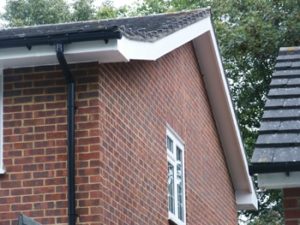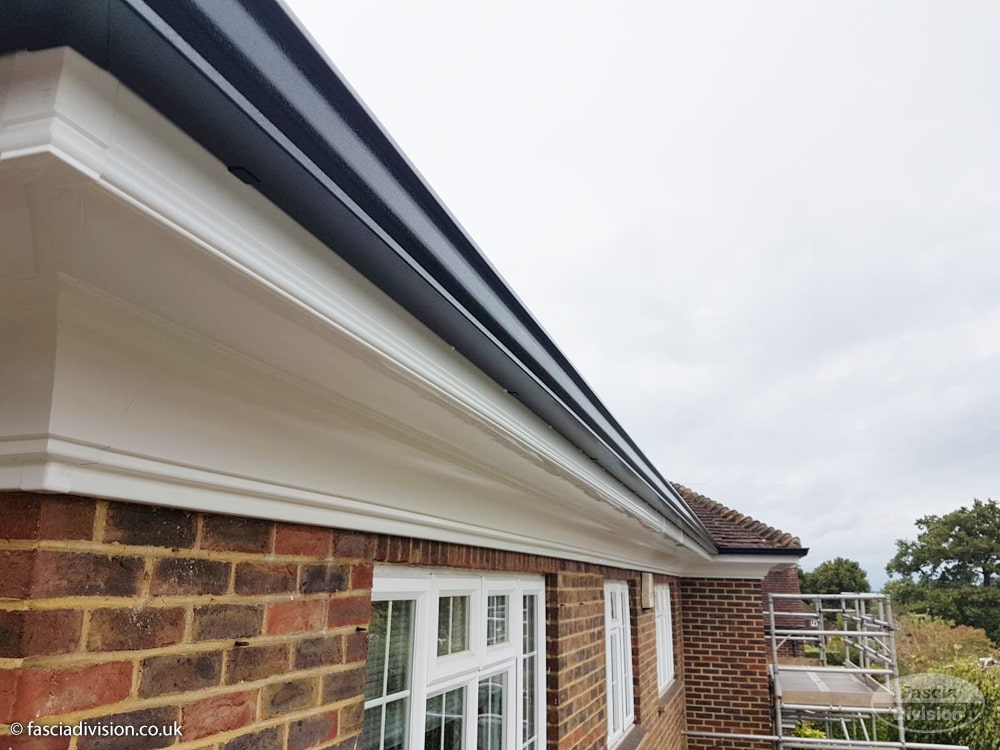
Upvc Soffit
Add a review FollowOverview
-
Sectors Automotive Jobs
-
Posted Jobs 0
-
Viewed 28
Company Description
How The 10 Worst Gutter Replacement Failures Of All Time Could Have Been Prevented
Understanding Fascia and Gutter Replacement: A Comprehensive Guide
When it pertains to home maintenance, many property owners frequently ignore the significance of fascia and rain gutters, in spite of their vital role in securing the structural stability of a home.
This short article looks into the complexities of fascia and gutter systems, explaining their purposes, the signs suggesting a need for replacement, and the steps involved in the replacement procedure.
What is Fascia?
Fascia describes the horizontal board that runs along the edge of a roof, functioning as a barrier between the roofing system and the external environment. Normally made of wood, vinyl, or aluminum, fascia plays a substantial role in:
- Supporting the lower edge of the roof
- Offering a finished seek to the eaves
- Safeguarding the underlying rafters and insulation from weather condition elements
- Functioning as a mounting point for rain gutters
The condition of the fascia is essential, as harmed or decomposing fascia can result in water infiltration, mold development, and comprehensive structural damage.
Understanding Gutters
Seamless gutters are the channels designed to collect and redirect rainwater from the roofing system far from the house’s structure. Like fascia, gutters are important for keeping a home’s integrity. Appropriately working gutters avoid:
- Water damage to the foundation
- Soil erosion around the home
- Basement flooding
- Mold and mildew development
Typically made from materials such as aluminum, copper, or vinyl, gutters should be frequently preserved to guarantee they carry out successfully.

Indications of Fascia and Gutter Damage
Property owners need to be alert for indications that indicate the need for fascia and gutter replacement. Common indications consist of:
Fascia Damage Signs
- Decaying or Crumbling: This usually arises from extended water direct exposure.
- Sagging: A bowing fascia might imply that it no longer uses adequate assistance.
- Visible Mold: Presence of mold indicates excessive moisture.
- Fractures or Holes: Structural stability is jeopardized with considerable cracks.
Gutter Damage Signs
- Rust or Corrosion: Particularly in metal rain gutters, rust shows advanced deterioration.
- Separation: If gutters are retreating from the fascia, they need immediate attention.
- Puddles Around the Foundation: This can suggest that gutters are not directing water appropriately.
- Overruning Water During Rain: This represents obstructions or misalignment.
The Importance of Fascia and Gutter Replacement
Disregarding fascia and gutter maintenance can result in numerous costly issues, consisting of:
- Foundation Damage: Water pooling can wear down the foundation.
- Roofing system Damage: Water can back up into the roof materials, triggering leakages.
- Interior Water Damage: This can lead to harmed drywall, insulation, and encourage mold development.
Replacing fascia and seamless gutters can assist reduce these concerns while making sure a home’s aesthetic appeal.
Actions for Fascia and Gutter Replacement
1. Evaluation
The primary step is a comprehensive evaluation of the existing fascia and gutter systems. This typically includes examining for signs of wear, measurement, and product determination.
2. Removal
The old fascia and gutter systems should be carefully removed. This might include:
- Detaching gutters from the fascia.
- Removing any screws or nails holding the fascia in location.
- Making sure to avoid damage to the roofing system or surrounding areas.
3. Installation of New Fascia
Once the old products are eliminated, the next step involves:

- Installing new fascia boards, ensuring they are level and appropriately lined up.
- Sealing any joints or joints to avoid water infiltration.
4. Gutter Installation
Following the fascia replacement, brand-new rain gutters can be installed by:
- Securing the gutters to the brand-new fascia using brackets.
- Making sure the gutter system has an appropriate slope for effective water circulation.
- Adding downspouts to direct water away from the foundation.
5. Completing Touches
After the installation, using a protective surface to the fascia might be helpful, specifically for wooden boards.
DIY vs. Professional Help
While some house owners may think about taking on fascia and gutter replacement on their own, it is typically suggested to hire professionals due to:
- The risks associated with dealing with roofs.
- The proficiency required for right installation.
- Access to better quality products.
Benefits and drawbacks of Professional Help
| Pros | Cons |
|---|---|
| Competence and experience | Greater expense |
| Quality and service warranty guarantees | Scheduling time restraints |
| Efficiency in completing the task | Less personal control over the procedure |
Frequently Asked Questions (FAQs)
1. How often should fascia and rain gutters be changed?
Normally, fascia and rain gutters can last between 20-50 years, depending upon the products utilized. Regular maintenance can extend this life. Evaluations must be conducted yearly, especially after severe weather.
2. How can I preserve my fascia and gutters?
Routine assessments and cleanings are crucial. Property owners need to remove debris from rain gutters, check for clogs, and examine for any indications of damage. Ensuring correct drain away from the home can also help.
3. What products are best for fascia and rain gutters?
- Fascia: Common materials include wood, vinyl, and aluminum, with aluminum frequently being preferred for its resilience.
- Gutters: Options consist of aluminum, copper, PVC, and steel. Aluminum is popular due to its lightweight nature and resistance to rust.
4. Can I set up gutters without changing fascia?
While it is possible to change gutters without altering fascia, it is suggested to evaluate the condition of the fascia. If the fascia is damaged, it’s best to change both concurrently to make sure a water resistant system.
Appropriately maintaining fascia and rain gutters is necessary for the longevity of a home. By understanding the indications that indicate a need for replacement and the steps associated with the process, property owners can take proactive procedures to safeguard their investment. Regular evaluations, maintenance, and timely replacements ensure peace of mind, securing versus potential water damage and making sure that the home stays aesthetically pleasing.



